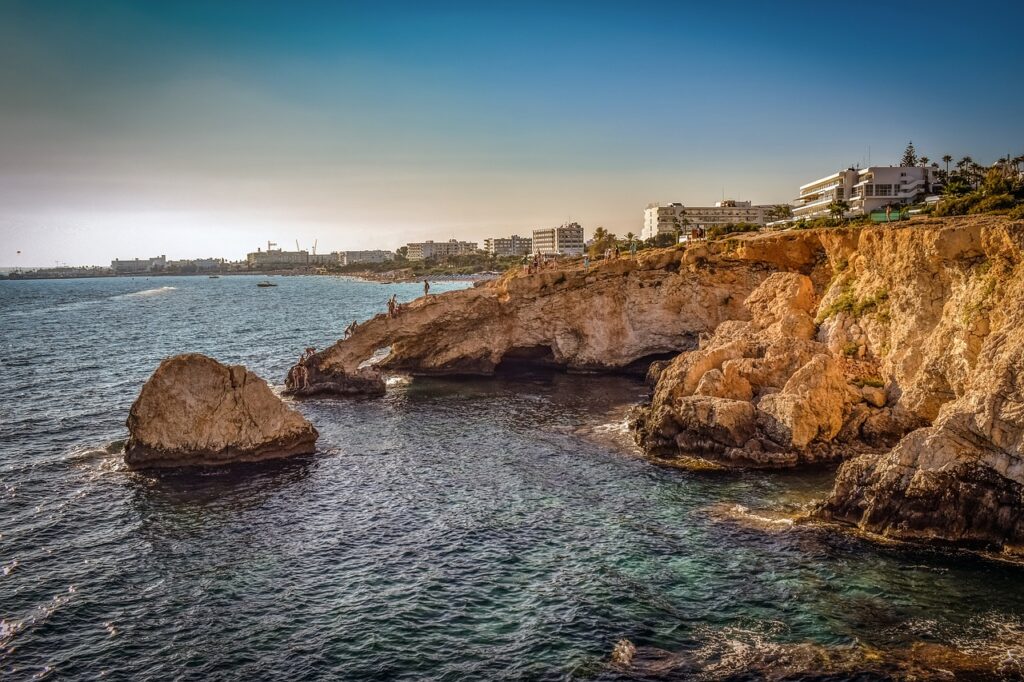Golden Passports or investor citizenship schemes might be tempting option to improve public finances but can be a risky business with dire consequences.
When I woke up this morning, I did my regular round of catching up on the news over a cup of coffee. What struck me immediately, was the story about 26 individuals losing their Cypriot citizenship. It’s the kind of headline that immediately catches your attention.
After all, there must be a bigger story if something so seemingly insignificant happens. No offense to Cyprus, it’s a wonderful island, but who would really bother about two dozen people being revoked their citizenship of a country with half the population of Chicago? So, I clicked on the link leading me to a Bloomberg article entitled “Cyprus to Pull Citizenship for People Who Got Passports by Investing” and read on…
25 people and one Malaysian
What is so special then about nine Russians, eight Cambodians, five Chinese, two Kenyans, one Iranian and one Malaysian obtained Cypriot nationality through the country’s investment-for-passport program? Well, to begin with the Malaysian is no other than Jho Low who is on the run from the authorities of Malaysia, Singapore, and the US, because of his involvement in the 1MDB scandal as allegedly responsible for diverting more than US$4.5 billion from the government-run strategic development company. A number of countries are investigating the whole story and last week Bloomberg had reported that the “U.S. Justice Department has struck a deal with fugitive financier Jho Low in which it will recoup almost $1 billion of money looted from the Malaysian investment fund 1MDB” and praised the settlement as the biggest recovery from an American anti-corruption crackdown. Jho Low, despite giving up such a large amount, denies any wrongdoing though you can’t help but wonder, can’t you?
The United States is not a safe haven for pilfered funds
These doubts are further when you continue reading the remarks of the responsible officer, the Assistant Attorney General Brian A. Benczkowski of the Justice Department’s Criminal Division:
“As alleged in the complaints, Jho Low and others, including officials in Malaysia and the United Arab Emirates, engaged in a brazen multi-year conspiracy to launder money embezzled or otherwise misappropriated from 1MDB, and he used those funds, among other things, to engage in extravagant spending sprees, acquiring one-of-kind artwork and luxury real estate, gambling freely at casinos, and propping up his lavish lifestyle,” said Assistant Attorney General Brian A. Benczkowski of the Justice Department’s Criminal Division. “This settlement agreement forces Low and his family to relinquish hundreds of millions of dollars in ill-gotten gains that were intended to be used for the benefit of the Malaysian people, and it sends a signal that the United States will not be a safe haven for the proceeds of corruption.”
“A staggering amount of money embezzled from 1MDB at the expense of the people of Malaysia was laundered through the purchase of big-ticket assets in the U.S. and other nations. Thanks to this settlement, one of the men allegedly at the center of this massive scheme will lose all access to hundreds of millions of dollars,” said U.S. Attorney Nicola T. Hanna of the Central District of California. “The message in this case is simple: the United States is not a safe haven for pilfered funds. Our strict anti-money laundering controls are effective, and we will seize assets used by criminals to conceal ill-gotten gains.”
“Today’s settlement with Jho Low demonstrates the continued commitment of the FBI to root out the fraud and selfishness of the corrupt individuals who conspired to pay bribes and launder funds which belong to the Malaysian people,” said FBI Assistant Director Terry Wade of the Criminal Investigative Division. “The FBI’s dedicated International Corruption Squads will continue to combat foreign corruption which reaches our shores. We will not allow criminals, foreign or domestic, to use the United States in furtherance of their criminal activities.”

The Wolf of Wall Street
It is an amazing story in itself and you could stay with it for the anecdotes about lavish spending sprees on private jets or super-yachts, mansions, diamonds and even Hollywood movie productions. Yes, you got it, the money was actually used to fund the making of The Wolf of Wall Street, a story about another financial criminal. Ironic, isn’t it?
But let’s not get distracted from the original question about revoking citizenship or rather how Jho Low got his passport in the first place. You see, according to reports, rumours already were circling about Low’s involvement when he sought to obtain the citizenship of the Mediterranean island. The Cypriot newspaper Politis has been digging for a while and still works to entangle the whole story.
When authorities closed in on him and the 1MDB scandal in 2015, Low reached out to global passport and citizenship broker Henley & Partners, which in turn had previously secured a passport for Low from the tiny Caribbean country of Saint Kitts and Nevis, according to the Sarawak Report. The report said Low obtained a Cypriot passport through the Cyprus Investment Plan, which requires an interested party to deposit five million euros in a Cypriot bank for three years and buy a permanent home worth at least 500,000 euros. Subsequently, Henley & Partners helped its client to purchase an unfinished villa in Ayia Napa for the sum of € 5 million, the report claims. And since that might not have been enough, Politis reports that the head of Cyprus’ Christian Orthodox church expressed in a letter to the then interior minister dated Sept 1, 2015 his request for Low to be granted a naturalised citizen status. Talking about deals with the devil, but it all explains why any form of due diligence conducted prior to the passport issue did not produce any red flags. That or someone decided to ignore then. And now Cyprus, following a billion-dollar scandal and international pressure has decided to pull the plug on Low and his 25 fellow Cypriot citizens.

Far from over
The story doesn’t end there, of course. Cyprus is not the single black sheep that has made pact with the devil to polish its public finances (at least you would assume that that is the objective of the scheme). The UK parliament has conducted an enquiry on Disinformation and ‘fake news’ and found that Henley & Partners even went as far as actively supporting administrations who operate these controversial citizenship schemes for high worth individuals when it comes to election time through its relationship with SCL Elections and its associated companies, including Cambridge Analytica – you remember the people from the Facebook scandal. Blimey!
It’s a risky business, but do not think that only small islands operate it. Bulgaria and Malta, too, offer Golden Passports to the EU, though you naturally hope that background checks there are little bit more efficient.
And then there are the Investor Residence Schemes or better known as Golden Visas. In the EU alone 20 member states operate such schemes: Bulgaria, Czechia, Estonia, Ireland, Greece, Spain, France, Croatia, Italy, Cyprus, Latvia, Lithuania, Luxembourg, Malta, Netherlands, Poland, Portugal, Romania, Slovakia and the United Kingdom.
While both kind of systems require due diligence and come with other requirements like minimum physical residency prior to application, the EU seems to be rather concerned about the whole thing. In January, the Commission published a report on the risks of investor citizenship and residence schemes in the EU and therein outlined steps to address these risks. The report found a number of issues with regard to both types. Golden Passports does not come with sufficient security checks and not integrated in the Schengen Information System; its due diligence does not live up to AML standards or rules on preventing tax evasion, nor are such schemes sufficiently transparent but instead marred by a lack of clear information. Equally alarming were the Commission’s findings on Golden Visas with regard to security concerns, circumvention of application requirements and the lack of transparency.
So, where does this leave us? Certainly at a point where believing that the possibility of such scandals occurring only on a small island would be as intelligent as the Cypriotic background checks.
